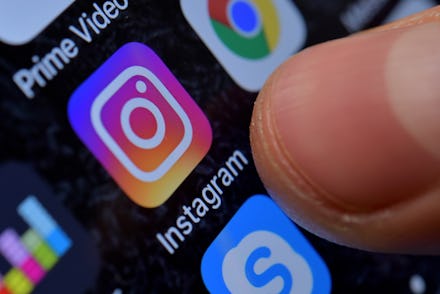Instagram is starting to hide likes for users around the world

Instagram has been toying with the idea of ditching like counters for some time now. This week, it started making that concept a reality across the world. After a test run launched in Canada, the company rolled out an update that hides how many likes a photo has for users in Australia, Brazil, Ireland, Italy, Japan, and New Zealand. Predictably, people are less than thrilled by the change, even though it might be good for them.
According to Instagram, it's moving forward with its plan to get rid of the public like counter because the company wants "your friends to focus on the photos and videos you share, not how many likes they get." Essentially, it's an attempt to curb a culture that is driven by approval on social media. Of course, that's a culture that Facebook and Instagram have helped to create, including enabling an entire economy of "influencers" who have managed to cash in on their massive followings despite some engaging in a fair amount of problematic behavior and promoting products and lifestyles with, at best, questionable benefits. By getting rid of the like counter, Instagram is hopeful that it can improve the overall health of its platform, including the mental wellbeing of its user base.
There's definitely some evidence to suggest the company may be onto something. People look at photos with high numbers of likes differently. A 2016 study published in the journal of Psychological Science put a series of photos with randomly assigned like totals in front of teens. The researchers found that images with higher like counts, no matter what that image was, caused regions of the brain linked to social activity, visual attention, and reward circuitry lit up. The teens were also significantly more likely to also like an image when they saw it already had a high number of likes. Researchers theorized that effect is likely amplified in real-life use of social media, where teens can see when their friends have liked an image and are seeing content from people in their life or people who are influential and important to them.
In addition to feeling pressure to engage with certain content just because it's popular, younger users also feel obligated to post their own photos that will rack up likes and comments. A 2018 study from the Pew Research Center found that 37 percent of people feel pressure to post statuses, photos, and videos that will get lots of likes and attention. Another 43 percent felt as though they should only post content that makes them look good. The problem? Actually getting those likes doesn't make people feel better. The British Psychological Society found that getting likes doesn't improve a person's mood, and in fact can simply add stress to a person's life as they chase that form of approval. The study also found that people who go out of their way to try to get more likes often have low self-esteem and can be less trusting of others.
Put all of that together and it's perhaps no surprise that Instagram's never-ending feed of people posting photos showing off only the best parts of their life is believed to have a negative effect on the mental health of the app's users, especially teens. In 2017, the Royal Society for Public Health in the U.K. warned that Instagram is the worst social network for the mental health of young people, leading to increased feelings of loneliness, depression, anxiety and concern about body image.
Despite all of this, a change as major as removing like counters from photos is one sure-fire way to irritate just about everyone — even if it might be the best thing for them. Instagram users in regions where the like counter has been removed took to other forms of social media to collectively freak out about the change.
It's not clear just how effective Instagram's change will be in cutting down on the worst aspects of social media. The app will still let users see like counts on their own photos, so those metrics are still readily available — they just won't be made public. Of course, Instagram also wouldn't make this change if it adversely affected engagement with the platform. It's reasonable to think that the lack of a like count will drive people to other forms of engagement like leaving comments, which is its own can of worms. With things like follower count still present on the app, it's also possible that people will still feel pressure to chase those other markers of success. In general, though, dropping the like counter should be a change for the better for everyone using Instagram. Well, everyone except for influencers, that is.